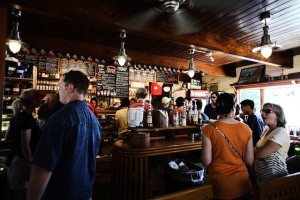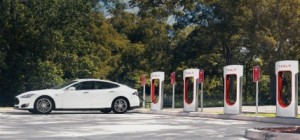Post 20 – A Week in a Low Carbon Life
From my perspective, there is now so much being written about climate change that I have very little sense of what people, who are not as interested in the topic as I am, hear, read, know or understand about it. I find that my understanding is not as good as I would like it to be; I find myself asking questions about what I read, with insufficient time to look for answers that satisfy me.  This results in me holding back in conversation; it’s not that I want to be an expert, but I do want to be able to talk about climate change in a way that, if people subsequently hear a similar conversation, the message is the same; ideas are reinforced; minds are changed (maybe)!
This results in me holding back in conversation; it’s not that I want to be an expert, but I do want to be able to talk about climate change in a way that, if people subsequently hear a similar conversation, the message is the same; ideas are reinforced; minds are changed (maybe)!
This week, a lot of things that I think are interesting, and linked to a low carbon life, have come to my attention. I regularly wonder if these things are of interest to anyone else but me. Never-the-less, this post is going to be about those things that have come to my attention over the last week that I think are interesting so stop reading here unless you are a bit of a nerd.
Storage batteries are in the news quite a bit now with the US company Tesla launching their domestic storage batteries called the Tesla Powerwall.  Prior to this launch, they have been primarily known for gorgeous, expensive, high-end electric cars that use battery technology. There is a lot of talk about domestic storage batteries being a ‘game changer’. I admit, I have been very excited about these batteries. If I remember correctly, they are due on the Australian market towards the end of this year, early next year but some of the articles that I have read remind me that ‘the devil is in the detail’. While these batteries will be reasonably affordable, about $3,500 for the smaller of the two (7 kWh and 10 kWh), they are not going to solve, for example, our personal winter heating problem that I have been recently blogging about. The sun simply does not shine enough here in winter to lessen our dependence on grid electricity. We may be able to reduce the cost of our electricity by ‘load shifting’, that is, topping up a battery with off-peak, overnight electricity that we then use during the day but this may not necessarily lower emissions (depending on the source of the grid electricity) and certainly won’t reduce our overall electricity consumption. I think that there might also be an issue with the batteries over the ‘draw’ needed by some bigger appliances like reverse cycle air conditioners. Reading the information on the Tesla site makes me think this arrangement would probably work well in homes that are empty for most of the day, where children go to school and the adults work away from home.
Prior to this launch, they have been primarily known for gorgeous, expensive, high-end electric cars that use battery technology. There is a lot of talk about domestic storage batteries being a ‘game changer’. I admit, I have been very excited about these batteries. If I remember correctly, they are due on the Australian market towards the end of this year, early next year but some of the articles that I have read remind me that ‘the devil is in the detail’. While these batteries will be reasonably affordable, about $3,500 for the smaller of the two (7 kWh and 10 kWh), they are not going to solve, for example, our personal winter heating problem that I have been recently blogging about. The sun simply does not shine enough here in winter to lessen our dependence on grid electricity. We may be able to reduce the cost of our electricity by ‘load shifting’, that is, topping up a battery with off-peak, overnight electricity that we then use during the day but this may not necessarily lower emissions (depending on the source of the grid electricity) and certainly won’t reduce our overall electricity consumption. I think that there might also be an issue with the batteries over the ‘draw’ needed by some bigger appliances like reverse cycle air conditioners. Reading the information on the Tesla site makes me think this arrangement would probably work well in homes that are empty for most of the day, where children go to school and the adults work away from home.
Anyway, this is all by way of a back story on batteries. This week I was very interested to hear that one of the satellite communities of our regional center was about to get a ‘battery’. I really didn’t know what this meant but the people who were talking about it said that if the power failed to the town, then the battery would provide enough power for everyone for an hour. Additionally the battery  will apparently delay the need to upgrade the ‘system’. This is an example of where the story generates more questions for me than it answers but, overall, I think it has to be good that large-scale storage capacity is being installed, and tested, on a distributed, community basis. I was hoping that next time I was in the area I could go and have a look at it but it is not going to be installed until the end of the year; the Koreans are still busy building it for us.
will apparently delay the need to upgrade the ‘system’. This is an example of where the story generates more questions for me than it answers but, overall, I think it has to be good that large-scale storage capacity is being installed, and tested, on a distributed, community basis. I was hoping that next time I was in the area I could go and have a look at it but it is not going to be installed until the end of the year; the Koreans are still busy building it for us.
Other complex, climate change issues that have repeatedly arisen this week through both my reading and conversations, are consumerism, low or no economic growth and globalization. (I see that I only have about another 300 words to write to hit my 1,000 word target for a post and how glad am I to see that because these are topics are very technical, highly controversial and certainly life changing, if the dominant paradigm is subverted). My simple understanding of these complex matters is this. We have to reduce our green house gas emissions – 80% of all known reserves of fossil fuels have to stay in the ground if we are to have a future. Although we will have access to renewable energy, it can’t totally replace all that we now use because, for one reason, there aren’t enough of the raw materials or energy needed, to make the renewable energy generators such as solar panels or wind turbines. Additionally, transport systems such as large ships and aircraft are, at this stage, not suited to run on renewable energy so many of the items that we import from overseas, as a result of the globalization of markets, will no longer be available to us. Instead of having 20 tee-shirts, we might only have three which we keep for five or six years rather than five or six months – consumerism will end, or at least radically change. Reduced consumerism will mean less demand which will probably mean low or no economic growth which will send many people into a doom and gloom ‘tail spin’. We are repeatedly told that recessions are bad and depressions are worse. We are also told that a recession is defined as something like two or three ‘quarters’ (of a year) of no or negative economic growth. We hear about the early 20th century depression where people starved and had no work.  While all these issues are linked in my mind, in a blur of limited understanding and concern, there are others saying that we should not fear the end of consumerism; the end of globalization; the end of economic growth; that such changes will not lead to starvation and no work but rather to an increase in satisfaction with life and greater social justice. I hope, how I hope, as I try to understand and articulate the arguments, that these ‘others’ are right. I will put my effort into learning and understanding but for now, I am going to conclude this post, still not having covered even half of the interesting low carbon topics that have caught my attention over the last week.
While all these issues are linked in my mind, in a blur of limited understanding and concern, there are others saying that we should not fear the end of consumerism; the end of globalization; the end of economic growth; that such changes will not lead to starvation and no work but rather to an increase in satisfaction with life and greater social justice. I hope, how I hope, as I try to understand and articulate the arguments, that these ‘others’ are right. I will put my effort into learning and understanding but for now, I am going to conclude this post, still not having covered even half of the interesting low carbon topics that have caught my attention over the last week.

